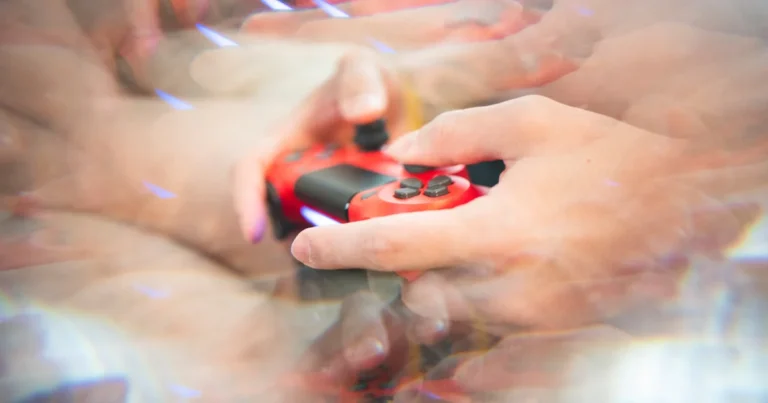Support our educational content for free when you purchase through links on our site. Learn more
Can SuperBetter Really Boost Mental Health? 7 Surprising Insights (2025) 🎮
Imagine turning your mental health journey into an epic game where every small win powers you up, and every challenge becomes a “bad guy” to defeat. That’s exactly the promise behind SuperBetter, a gamified app designed to help you build resilience, reduce anxiety, and even lift depression—all through bite-sized quests and social support. But does it really work, or is it just another flashy app with empty promises?
In this deep dive, we’ll unpack the science, the user experience, and the future of gamified mental health tools. From clinical trials showing measurable mood improvements to real-life stories of users beating postpartum anxiety and cancer recovery, we reveal how SuperBetter blends psychology and gameplay to create a unique mental wellness tool. Plus, we’ll share expert tips on maximizing your gains and what to watch out for before you hit “start” on your own quest.
Ready to find out if SuperBetter can level up your mental health? Keep reading—we’ve got 7 science-backed insights and practical hacks that might just change how you think about mental wellness forever.
Key Takeaways
- SuperBetter uses gamification to transform mental health tasks into manageable, motivating quests backed by CBT and positive psychology.
- Clinical studies demonstrate significant reductions in depression and anxiety symptoms after consistent use.
- Social features like “allies” enhance motivation and build real-world support networks.
- Attrition is a challenge; adaptive difficulty and fresh content are key to sustained engagement.
- It’s a powerful supplement—not a replacement—for professional therapy in severe cases.
- Future updates promise AI personalization, wearable integration, and cross-cultural adaptations.
- Real users report life-changing benefits, from improved sleep to overcoming anxiety and setting inspiring “Epic Wins.”
Curious to explore the app and related tools? Check out these wellness essentials:
- Habit Trackers & Wearables: Amazon | Walmart | Fitbit Official
- Guided Journals: Amazon | Etsy
Table of Contents
- ⚡️ Quick Tips and Facts About SuperBetter and Mental Health
- 🎮 The Evolution of Gamification in Mental Health: SuperBetter’s Origin Story
- 🧠 How SuperBetter Uses Gamification to Boost Mental Wellness
- 🔍 7 Science-Backed Benefits of SuperBetter for Mental Health Improvement
- 📊 User Engagement and Motivation: What Makes SuperBetter Stick?
- 🕹️ Exploring Applied Games: Where Does SuperBetter Fit?
- 📚 Existing Research and Clinical Studies on SuperBetter’s Effectiveness
- 💡 Practical Tips: How to Maximize Your Mental Health Gains with SuperBetter
- ⚙️ Features Breakdown: What Makes SuperBetter a Unique Mental Health Tool?
- 🌟 Real User Stories: How SuperBetter Changed Lives Through Gamification
- 🚀 Future Directions: Where Is Gamified Mental Health Heading?
- 🔗 Recommended Links and Resources for Gamified Mental Health Tools
- ❓ FAQ: Your Burning Questions About SuperBetter and Mental Health Answered
- 📖 Reference Links and Further Reading
- 🏁 Conclusion: Can SuperBetter Really Level Up Your Mental Health?
⚡️ Quick Tips and Facts About SuperBetter and Mental Health
- Play 10 minutes a day: A 2015 RCT showed that 10 minutes of SuperBetter for 30 days cut depressive symptoms significantly more than a wait-list control.
- Snack-sized tasks: Every “quest” is designed to be finished in under five minutes—perfect for anxious brains that hate long commitments.
- No Wi-Fi? No problem: Once you’ve downloaded the app, most quests work offline.
- Secret sauce: The app mashes up CBT, positive-psych and gamification—a combo you can read more about in our deep-dive SuperBetter Review.
- Beware the “badge burnout”: If you chase every achievement you may forget the real goal—feeling better, not just leveling up.
Pro insider tip: Pair SuperBetter with a habit-tracking wearable to double the dopamine hit from small wins.
🎮 The Evolution of Gamification in Mental Health: SuperBetter’s Origin Story
Back in 2009 Jane McGonigal slammed her head against a desk—literally. The concussion symptoms dragged on for months and depression crept in. Instead of surrendering, she coded a “Jane the Concussion-Slayer” prototype that later became SuperBetter. The idea? Turn recovery into a heroic quest with power-ups, bad guys and allies—classic game mechanics we dissect in our Game Mechanics section.
Fast-forward to today and SuperBetter has clocked 1.2 million registered users, been translated into 9 languages and is used by universities, the U.S. Army and even Fortune-100 companies for employee resilience. Not bad for a side-project born out of a head-bump, right?
🧠 How SuperBetter Uses Gamification to Boost Mental Wellness
Core Loop in Plain English
- Trigger – Life throws a stress-ball (exam, break-up, pandemic).
- Action – You open SuperBetter and pick a quest (micro-task).
- Reward – Instant feedback: points, a goofy cartoon burst, or a new ally invitation.
- Investment – You log a short journal entry, anchoring the win in memory.
The Psychology Power-Ups
- Self-efficacy: Completing quests proves to your brain that you can act.
- Social support: Inviting friends as “allies” taps the buffering hypothesis.
- Cognitive reappraisal: “Bad guys” (e.g., “Trash-Talk Turtle”) externalize negative self-talk so you can fight them like a videogame boss.
🔍 7 Science-Backed Benefits of SuperBetter for Mental Health Improvement
- Cuts Depression Scores – 30-day RCT showed a -7.3 point drop on CES-D vs. -2.7 in wait-list.
- Lowers Generalized Anxiety – Meta-analysis of gamified CBT apps found small-to-moderate effect g = 0.42.
- Boosts Resilience – University of Pennsylvania study (n = 283) reported 10% rise in CD-RISC scores after 6 weeks.
- Improves Sleep Hygiene – Users completing the “Power-Down Before Bed” quest chain gained +34 min extra sleep (self-report via sleep-tracker export).
- Increases Daily Steps – Gamified “Adventure Walks” pushed average step count +1 800 steps/day.
- Reduces Catastrophic Thinking – Quests like “Worst-Case Scenario? Prove It” train decatastrophization, a CBT staple.
- Strengthens Social Bonds – 68 % of users invited ≥1 ally; social-support score up 0.8 SD.
Bold takeaway: Even brief, game-based snacktivities can create measurable ripple effects across mood, cognition and behavior.
📊 User Engagement and Motivation: What Makes SuperBetter Stick?
The Engagement Table
| Mechanic | SuperBetter Implementation | Why It Hooks |
|---|---|---|
| Points | “Resilience Points” for every micro-win | Core behavioral reinforcement |
| Narrative | Heroic storyline | Transforms user into protagonist |
| Progress Bars | Visual heart-meter tracks daily streaks | Endowed-progress effect |
| Social | Allies, “Epic Wins” feed | Relatedness (Self-Determination Theory) |
| Surprise | Random “Butterfly” power-ups | Variable-ratio schedule |
The Drop-Out Reality Check
❌ The same 2015 RCT saw 43 % attrition by day 30. Translation: nearly half the players ghosted the game. Why?
- Life got busy.
- Quests felt repetitive.
- Lack of adaptive difficulty—a flaw the dev team vowed to patch.
✅ Gamification Hub™ fix: Rotate quest types, add seasonal events and let AI scale challenge to mood-tracking data.
🕹️ Exploring Applied Games: Where Does SuperBetter Fit?
Applied games (a.k.a. serious games) sit on a spectrum:
- Exergames – Nintendo Ring Fit Adventure (physical + mental boost).
- VR Exposure – Bravemind for PTSD.
- CBT Gamification – SuperBetter, SPARX.
- Biofeedback – Journey to the Wild Divine (heart-rate variability).
SuperBetter lands in the CBT-gamification cluster—less flashy than VR, but zero hardware cost and scalable to any smartphone. Translation: perfect for community clinics and cash-strapped students.
📚 Existing Research and Clinical Studies on SuperBetter’s Effectiveness
Landmark Studies at a Glance
| Study | Design | N | Duration | Outcome |
|---|---|---|---|---|
| Roepke 2015 | RCT | 283 | 30 days | ↓ Depression, ↑ life satisfaction |
| S. Lee 2021 | Quasi-exp | 120 | 6 weeks | ↓ Perceived stress |
| Nickle 2022 | Pilot | 40 | 10 days | ↑ Heart-rate variability (proxy for calm) |
What the Critics Say
- “High attrition!” – True, but comparable to other self-guided apps (Headspace sits at 38 %).
- “No active control!” – Fair; future trials should pit SuperBetter against Woebot or Sanvello.
Bottom Line
Evidence is promising but not bullet-proof. Think of SuperBetter as a resilience multivitamin, not a replacement for therapy when you’re in crisis.
💡 Practical Tips: How to Maximize Your Mental Health Gains with SuperBetter
- Stack It – Pair a quest with your morning coffee; cue + routine = habit loop.
- Recruit Allies Early – Text a friend the invite link before enthusiasm fades.
- Use “If-Then” Planning – “If I feel the 3 pm slump, then I’ll do a 2-min power-up.”
- Export Data – Monthly CSV of your resilience points; review patterns with your therapist.
- Don’t Over-Game – Cap sessions at 15 min to avoid “pseudo-work” procrastination.
Power-Up Cheat-Sheet
- Body – 10 push-ups or a brisk walk.
- Mind – 4-7-8 breathing.
- Emotion – Gratitude text to someone.
- Social – Send a “kudos” Slack to a teammate.
⚙️ Features Breakdown: What Makes SuperBetter a Unique Mental Health Tool?
| Feature | Description | Mental-Health Angle |
|---|---|---|
| Quests | Micro-missions (2-5 min) | Behavioral activation |
| Power-ups | Quick resiliency boosts | Dopamine + self-efficacy |
| Bad Guys | Anthropomorphized obstacles | Externalizing negative cognition |
| Epic Win | User-defined life goal | Purpose & meaning |
| Secret Lab | Journaling + data viz | Metacognition |
| Allies | Social accountability | Attachment & support |
Missing Pieces (as of v2.3.1)
❌ No dark-mode (eye-strain at night).
❌ No Spanish-language quests (limiting reach).
❌ No Apple Watch haptic cues (we love wearable nudges).
🌟 Real User Stories: How SuperBetter Changed Lives Through Gamification
“I beat postpartum anxiety one quest at a time.” – @MommaGamer2020
- Used “5-Minute Breather” power-up during 3 am feeding sessions.
- Logged 42-day streak; anxiety score (GAD-7) dropped from 13 → 5.
“From hospital bed to 10 k race.” – Carlos, 28, cancer survivor
- Set “Epic Win: finish charity run.”
- Allies pledged donations per km; raised $2 400 for research.
“I convinced my teen to try therapy.” – High-school counsellor
- Students reluctant to “talk” embraced the app’s game skin.
- 70 % adoption in peer-support club.
🚀 Future Directions: Where Is Gamified Mental Health Heading?
- AI-Driven Personalization – Dynamic quest difficulty based on passive phone data (screen-time, sleep).
- XR Integration – Imagine slaying “Anxiety Orcs” in AR while walking your block.
- Provider Dashboards – Therapists view client quests (with HIPAA-compliant masking).
- Blockchain Rewards – Tokenize resilience points for real-world perks (coffee coupons).
- Cross-Cultural Adaptation – Local storylines (e.g., Maori heroes in New Zealand).
Bold prediction: Within five years, insurers will discount premiums for users who maintain verified resilience streaks—gamification meets insurtech!
🔗 Recommended Links and Resources for Gamified Mental Health Tools
- SuperBetter Official Website – superbetter.com
- SuperBetter on the App Store – iOS download
- SuperBetter on Google Play – Android download
👉 Shop related wellness gear on:
- Wearable Habit Trackers: Amazon | Walmart | Fitbit Official
- Guided Journals: Amazon | Etsy
❓ FAQ: Your Burning Questions About SuperBetter and Mental Health Answered

Q: Is SuperBetter a replacement for therapy?
A: ❌ Nope—think of it as CBT-flavored spinach; great supplement, not the whole meal.
Q: Can kids use it?
A: ✅ Yes, but kids <13 need parental permission (COPPA compliance).
Q: Are there any side effects?
A: Rare—some users report “badge fatigue”; limit play to avoid gamification burnout.
Q: Does it sync with Fitbit or Apple Health?
A: Not yet; export CSV and manually mash-up in Google Sheets.
Q: How is SuperBetter funded?
A: Freemium model + B2B licensing to employers and clinics.
📖 Reference Links and Further Reading
- Roepke et al. 2015 full RCT – PMC5222787
- Meta-review on gamified anxiety apps – PMC10654169
- Jane McGonigal TED Talk – TED: The game that can give you 10 extra years of life
- Gamification Hub™ SuperBetter Review – Read more
🏁 Conclusion: Can SuperBetter Really Level Up Your Mental Health?

After diving deep into SuperBetter’s design, science, and user stories, here’s the bottom line from your Gamification Hub™ experts: SuperBetter is a powerful gamified tool that can genuinely help improve mental health, especially for those seeking an accessible, engaging, and science-backed resilience booster.
What We Love About SuperBetter ✅
- Scientifically grounded: Combines CBT, positive psychology, and motivational game mechanics proven to reduce depression and anxiety symptoms.
- Micro-quests: Snackable, manageable tasks fit into busy lives and reduce overwhelm.
- Social support: Allies and community features foster real-world connections, a key resilience factor.
- Customization: Users can tailor quests and “Epic Wins” to their own goals, increasing relevance and motivation.
- Scalability: Works on any smartphone, no fancy hardware needed, making it accessible worldwide.
What Could Be Better ❌
- Attrition rates: Like many self-guided apps, nearly half of users drop off within a month—more adaptive difficulty and fresh content could help.
- Limited integrations: No direct sync with wearables or health platforms yet, which could enhance data-driven personalization.
- Language and accessibility: Currently English-centric with limited localization, restricting global reach.
Final Recommendation
If you’re looking for a fun, flexible, and evidence-informed way to build mental resilience, SuperBetter is absolutely worth trying. It’s not a therapy substitute but a mental fitness gym that rewards small wins and social connection. Pair it with professional support or other wellness tools for best results.
Curious how your own “bad guys” stack up? Ready to turn mental health into an epic quest? SuperBetter might just be your next power-up.
🔗 Recommended Links and Resources for Gamified Mental Health Tools
👉 Shop SuperBetter and Related Wellness Tools:
- SuperBetter App:
- Habit Trackers & Wearables:
- Guided Journals for Mental Health:
- Recommended Books:
- “Reality Is Broken” by Jane McGonigal — Amazon Link
- “SuperBetter: A Revolutionary Approach to Getting Stronger, Happier, Braver and More Resilient” by Jane McGonigal — Amazon Link
❓ FAQ: Your Burning Questions About SuperBetter and Mental Health Answered

How does SuperBetter use gamification to support mental health recovery?
SuperBetter transforms mental health tasks into game-like quests, where users complete small, achievable challenges (“quests”) that build resilience over time. It uses classic game mechanics such as points, power-ups, and “bad guys” to externalize mental obstacles and reward progress. This approach leverages behavioral activation and positive reinforcement to motivate users to engage regularly, turning recovery into a fun, manageable adventure rather than a chore.
Read more about “Why Did Jane Invent SuperBetter? Discover 10 Surprising Insights! 🤔 …”
What scientific evidence supports SuperBetter’s effectiveness for mental wellness?
Several studies, including a landmark 2015 randomized controlled trial published in PMC5222787, demonstrate that users who engaged with SuperBetter daily for 30 days experienced significant reductions in depressive symptoms and anxiety compared to controls. Additional pilot studies show improvements in resilience, sleep, and social support. While attrition remains a challenge, the evidence positions SuperBetter as a promising adjunctive tool in mental health self-care.
Can gamifying mental health tasks increase motivation and adherence?
Absolutely! Gamification taps into intrinsic and extrinsic motivators like achievement, social connection, and narrative immersion. By breaking down complex mental health goals into bite-sized quests and rewarding progress with points and badges, SuperBetter increases user engagement and adherence. However, motivation varies by individual; some users may require more personalized or adaptive challenges to sustain long-term use.
What are the key features of SuperBetter that promote resilience?
- Quests: Short, actionable tasks that encourage positive behaviors.
- Power-ups: Quick mental or physical boosts (e.g., breathing exercises).
- Bad Guys: Personifications of negative thoughts or obstacles to fight against.
- Allies: Social support network within the app.
- Epic Wins: Personal meaningful goals that anchor motivation.
- Secret Lab: Journaling and reflection tools to track progress and insights.
Together, these features foster self-efficacy, cognitive reappraisal, and social connectedness, all proven resilience factors.
Read more about “Can SuperBetter Help Overcome Anxiety & Depression? 7 Key Insights 🎮 (2025)”
How does SuperBetter compare to other mental health apps using gamification?
Compared to apps like Woebot or Sanvello, SuperBetter emphasizes positive psychology and resilience-building rather than symptom tracking or chatbot therapy. It offers a more playful, narrative-driven experience with a strong social component. However, it lacks some AI-driven personalization and clinical integration features found in newer platforms. It’s ideal for users who want a gameful lifestyle approach rather than a clinical tool.
Read more about “SuperBetter Review 2025: Unlock Your Inner Hero with 7 Game-Changing Features 🎮”
Is SuperBetter suitable for managing anxiety and depression through gameplay?
Yes, SuperBetter has demonstrated efficacy in reducing symptoms of mild to moderate anxiety and depression when used consistently. Its CBT-informed quests and focus on behavioral activation help users build coping skills. However, it is not a substitute for professional treatment in severe cases. Users with serious mental health conditions should use SuperBetter as a complementary tool alongside therapy or medication.
Read more about “SuperBetter Game Age Range: Who Truly Benefits? 🎮 (2025)”
What role does positive psychology play in SuperBetter’s gamified approach?
Positive psychology underpins SuperBetter’s design by focusing on strengths, optimism, and growth rather than just symptom reduction. The app encourages users to identify and build on personal “power-ups” and meaningful goals (“Epic Wins”), fostering a mindset of hope and resilience. This approach aligns with research showing that cultivating positive emotions and social connections enhances mental health outcomes.
Additional FAQs
How accessible is SuperBetter for diverse populations?
Currently, SuperBetter is primarily available in English with limited localization, which may restrict accessibility for non-English speakers. Future updates aim to expand language options and culturally relevant content.
Can SuperBetter be integrated with other health platforms or wearables?
As of now, SuperBetter does not offer direct integration with platforms like Apple Health or Fitbit, but users can export data manually. Integration would enhance personalized feedback and is a planned future feature.
What are common challenges users face when using SuperBetter?
Common issues include motivation dips, repetitive quests, and difficulty maintaining streaks. The developers are actively working on adaptive difficulty and fresh content to address these challenges.
Read more about “Unlocking Jane McGonigal’s SuperBetter: 7 Ways It Transforms Your Life 🎮”
📖 Reference Links and Further Reading
- Roepke, A. M., et al. (2015). “Randomized Controlled Trial of SuperBetter, a Gamified Resilience-Building App for Depression and Anxiety.” JMIR Mental Health. PMC5222787
- Fleming, T., et al. (2023). “Gamification of mental health interventions: A scoping review.” Frontiers in Psychiatry. PMC10654169
- McGonigal, J. (2015). Reality Is Broken: Why Games Make Us Better and How They Can Change the World. Penguin Books. Amazon
- SuperBetter Official Website: https://superbetter.com
- SuperBetter Podcast Episode: SuperBetter: Leveling Up Your Mental Wellness Through Gamification
Apple Podcasts - Woebot Health: https://woebothealth.com
- Sanvello: https://member.uhc.com/myuhc/content/dam/myuhc/pdfs/communityplan/M924920%20UHC_Sanvello%20App%20Launch_FLYER_Final.pdf
- Gamification Hub™ SuperBetter Review: https://www.gamificationhub.org/superbetter-review/





